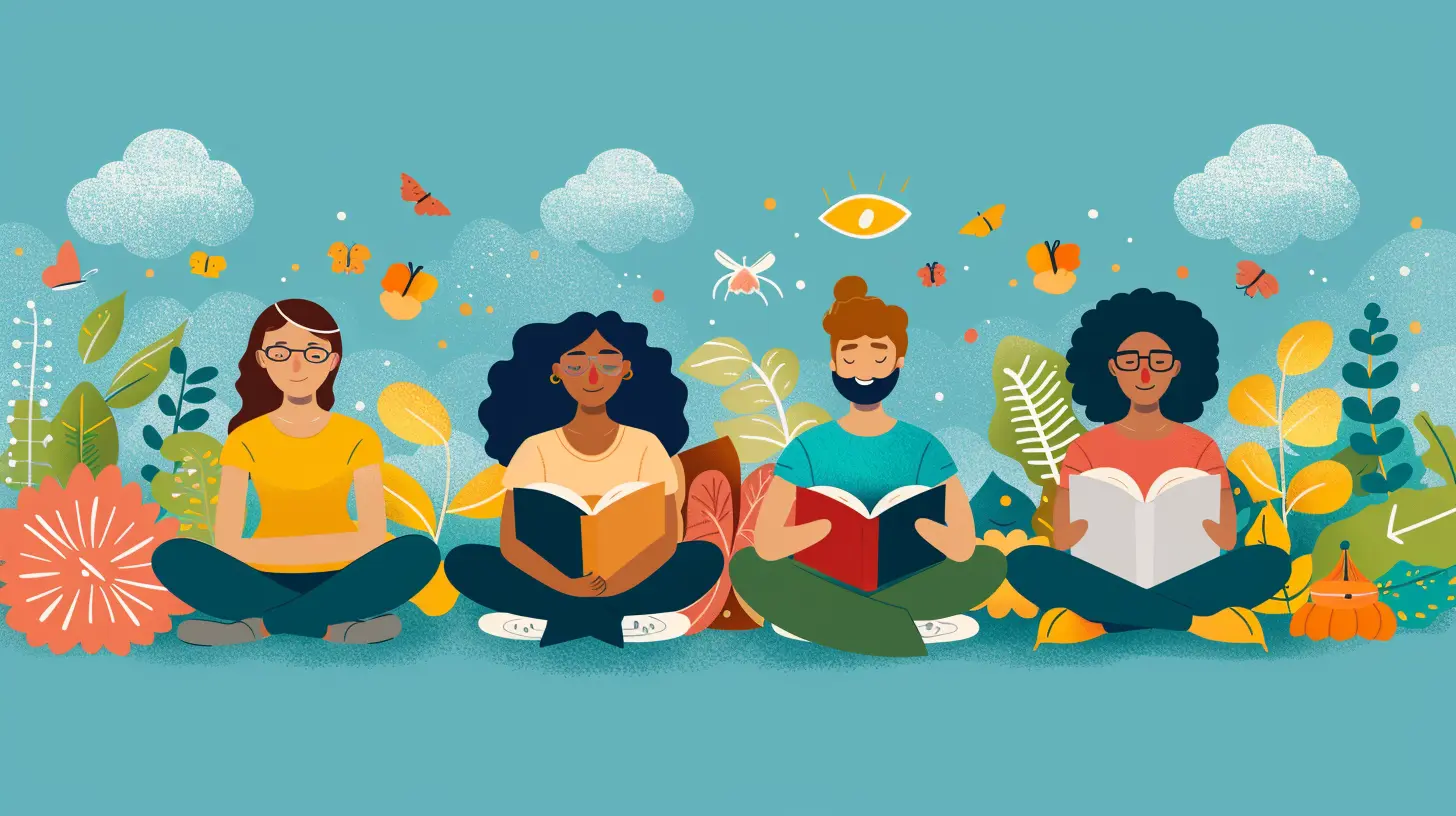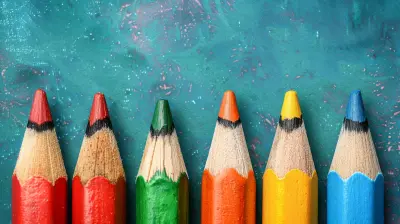5 July 2025
Let’s face it—our minds are constantly buzzing. One second you're studying for a test, the next you're thinking about what’s for dinner or scrolling through memes. In a world full of distractions, how on earth are we supposed to stay focused and actually remember what we learn?
That’s where mindful learning steps in.
Mindful learning is more than a buzzword; it’s a game-changer. It’s about being fully present when you’re learning—rather than just going through the motions. And the best part? Anyone can do it. No special tools required. Just a willingness to pause, breathe, and show up for yourself.
So, buckle up. In this article, we’ll dive into powerful strategies that can help boost your focus and memory using the magic of mindfulness.
What Is Mindful Learning Anyway?
Mindful learning combines two powerful ideas: mindfulness and learning. Mindfulness is simply being aware of the present moment without judgment. Apply that to learning, and you’ve got a brain that’s not only soaking up information but also enjoying the process.It's like switching from autopilot to manual. Instead of zoning out during a lecture or speed-reading a chapter just to get it over with, you actually tune in with curiosity, focus, and intention. You stop just memorizing, and start understanding.
Why Mindful Learning Matters
Let’s be real—traditional learning can feel dry, stressful, and overwhelming. Especially when you cram before exams or multitask your way through homework. Mindful learning flips that narrative.Here’s what it brings to the table:
- Boosted concentration: Mindfulness helps you cut through the noise and stay focused.
- Improved memory: You're more likely to retain information when you're mentally present.
- Reduced stress: A calmer mind learns better.
- Deeper understanding: It’s not just about “what”—it’s also “why” and “how”.
Think of your mind like a sponge. A dry, distracted sponge won’t absorb much. But a soaked, present sponge? It’ll take everything in.
Strategy #1: Start Your Study Sessions with Intention
Before you even crack open a book, pause. Set an intention.Ask yourself: Why am I studying right now? What do I want to get out of this? How do I want to feel during and after this session?
It doesn’t have to be deep. It could be as simple as:
- “I want to focus on understanding this chapter.”
- “I want to stay off social media for the next hour.”
- “I want to feel confident by the end of this session.”
Intentions aren’t goals — they’re directions. Setting them aligns your mind and gives your efforts a purpose.
Strategy #2: Create a Distraction-Free Zone
Distractions are focus killers. And let’s be honest—your phone is probably the biggest culprit.Here’s the deal: You can’t practice mindful learning while your notifications are blowing up every 10 seconds.
Try this:
- Put your phone on “Do Not Disturb” or airplane mode.
- Use a website blocker to avoid temptation.
- Clear your study space of clutter.
- Let others around you know not to disturb you.
Create a space where your brain can breathe. Think of it like preparing a stage before a performance—you need calm, not chaos.
Strategy #3: Use Mindful Breathing to Reset Your Focus
Ever feel like your brain is all over the place while studying? That’s a sign to pause and breathe.Try this simple exercise:
1. Close your eyes.
2. Inhale slowly for 4 seconds.
3. Hold for 4 seconds.
4. Exhale for 4 seconds.
5. Pause for another 4 seconds.
Repeat this for a minute or two. It’s called box breathing, and it works wonders. It resets your nervous system, calms your mind, and sharpens your attention.
Use it whenever you notice your focus slipping. It’s like a mini-reboot for your brain.
Strategy #4: Practice Active Engagement
Mindful learning means showing up fully. But how?Get hands-on with the material. Don’t just read—interact.
Try these techniques:
- Summarize what you learned in your own words.
- Teach the concept to someone else (even your dog will do!).
- Take notes with visuals, colors, or mind maps.
- Ask yourself questions as you go.
- Relate the info to something you already know.
Think of learning like a conversation. Don’t just listen—talk back, question, and connect the dots.
Strategy #5: Embrace the Power of Micro-Learning
Studies show that the brain learns better in short, focused bursts rather than one long marathon.Enter: micro-learning.
Instead of forcing yourself to sit for three hours straight, break your study into small chunks—like 25-minute blocks with 5-minute breaks (hello, Pomodoro Technique!).
Short bursts keep your brain fresh and engaged. It’s kind of like interval training at the gym—more effective, less exhausting.
And during those breaks? Don’t just scroll. Stretch, breathe, walk around, stare out the window—anything that lets your brain reset.
Strategy #6: Reflect After Learning
Reflection is the secret sauce of mindful learning. It helps you make sense of what you’ve just absorbed.At the end of your session, ask yourself:
- What did I learn today?
- What was challenging?
- What helped me understand better?
- What can I do differently next time?
Writing down a quick journal entry or even just thinking through your answers can solidify your learning. You’re not just filing away facts—you’re connecting them to your experience.
Strategy #7: Practice Gratitude for Your Brain
Yup, you read that right. Be grateful for your brain.It’s doing so much behind the scenes—processing info, making connections, storing memories. And guess what? Gratitude boosts dopamine, which can improve motivation and learning.
At the end of your day, acknowledge the mental work you put in.
Say something like:
- "I'm proud of myself for showing up today."
- "I'm grateful that I pushed through even when it was hard."
- "My brain is amazing for what it can do."
It might sound cheesy, but trust me—it works. Mindful learning starts with self-kindness.
Real Talk: Mindful Learning Isn’t About Perfection
Let’s get one thing straight: You don’t have to get it “right” every time.You’ll get distracted. You’ll procrastinate. You’ll forget stuff. That’s normal. You're human.
The key is noticing when you drift and gently bringing yourself back. That’s mindfulness. That’s learning.
Every time you catch yourself zoning out and choose to refocus—that’s a win. It’s like doing bicep curls for your brain.
Bonus Tips to Supercharge Your Mindful Learning
Want to take it even further? Try weaving in these golden nuggets:- Use background music: Soft instrumental tunes can help some people focus.
- Chew gum or use essential oils: Specific scents and tastes can anchor your attention.
- Move your body: Exercise boosts brain function and helps declutter mental fog.
- Get enough sleep: No amount of mindfulness can make up for a sleep-deprived brain.
- Eat brain-friendly foods: Think nuts, leafy greens, berries, and omega-3s.
Final Thoughts: You’ve Got This
Mindful learning isn’t some mystical practice reserved for monks on a mountain. It’s for students, professionals, parents—anyone who wants to make the most of their brain power.The best part? It’s already in you. You don’t need to overhaul your life. Just start small. One deep breath. One focused study block. One moment of intention.
Over time, those moments add up. And before you know it, your focus sharpens, your memory strengthens, and your learning becomes something you actually look forward to.
So the next time you sit down with a textbook or open your laptop, remember: this is your chance to show up—not just physically, but mentally. Mindfully.
Let your learning journey be a practice. Not of perfection, but of presence.
You’ve got this.









Eleanor McNab
Embracing mindful learning transforms the way we absorb knowledge. By integrating focus and presence into our study habits, we unlock greater understanding and retention, paving the way for a brighter, more enriched future!
February 9, 2026 at 8:07 PM